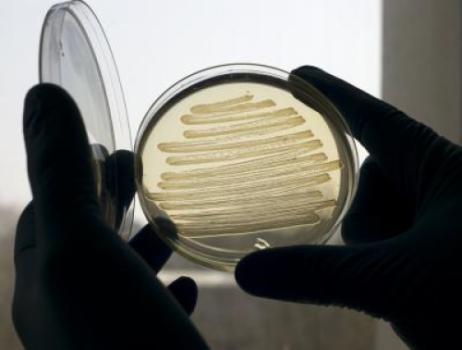We're open daily! View holiday hours
Science News
Gut Fuel
April 25, 2013
by Molly Michelson

What if the bacteria in your gut could produce a cleaner fuel for cars and trucks? It turns out, with a little fiddling, they can!
Researchers in the United Kingdom took the common gut bacteria, Escherichia coli, and added genes from the camphor tree, blue-green algae and two other bacteria (Photorhabdus luminescens and Bacillus subtilis). The addition of genes from blue-green algae and the two bacteria allow E.coli to make hydrocarbons from fatty acids; the camphor tree genes makes the hydrocarbons a similar length to those found in fossil fuels.
So when the scientists fed the glucose from plants to the souped-up E. coli, the gut bacteria turned the food into a fuel very similar to the diesel fuel derived from crude oil. Voilà! Gut Fuel!
The remarkable thing about this biofuel—a fuel derived directly from living matter— is that it can be pumped into current gas tanks with absolutely no modifications. Most other biofuels require vehicle owners to adjust their engines to operate with the more sustainable liquids, or involve mixing the biofuel with traditional fossil fuels.
John Love, of the University of Exeter, says this was a priority. “Producing a commercial biofuel that can be used without needing to modify vehicles has been the goal of this project from the outset. Replacing conventional diesel with a carbon neutral biofuel in commercial volumes would be a tremendous step towards meeting our target of an 80% reduction in greenhouse gas emissions by 2050.”
Well, not so fast… Producing this new biofuel en masse will take a lot more work. The scientists are hoping to wean the E. coli off plants and use animal or agriculture waste instead. Otherwise, they foresee a similar problem for their new biofuel as that faced by current biofuels—it’s tough to argue that we should be devoting our farmlands to growing fuels over growing food.
In addition, E. coli hydrocarbons cost more to produce than fossil fuel hydrocarbons. At least on paper. But in the long run, probably not.
The research is published in this week’s Proceedings of the National Academy of Sciences.
Image: Marian Littlejohn